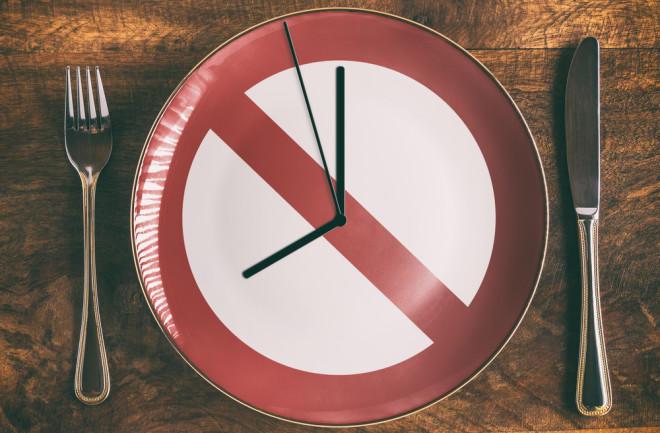Perhaps nothing unites people — especially Americans — quite like the shared desire to lose a couple of pounds. I’m in this camp as well. I’ve tried and succeeded in losing weight exactly twice in my life. The first time involved a few months of angst-induced calorie-counting, followed by a nasty bout of the stomach flu. Not easily repeatable.
The second time was through a fairly intensive fitness and nutrition program. We were instructed to focus on controlling portion sizes and eat six small meals spaced evenly throughout the day. The program lasted 21 days, and so did my lost weight.
This grazing-style diet — never eating too much at one time but eating often — is fairly common. But recent evidence seems to neatly contradict this line of thinking. Studies point instead to the benefits of intermittent fasting, a strategy that involves restricting the times you eat rather than what or how much you’re eating. You eat only during certain hours, or sometimes, only on certain days. No calorie counting, no anything-counting, no measuring, just obeying the clock. In other words, it’s the exact opposite of the always-nibbling plan.
Which begs the question: Which is it? Should we be grazing or fasting for weight loss? These diametrically opposed diets can’t be equally healthy, can they?

